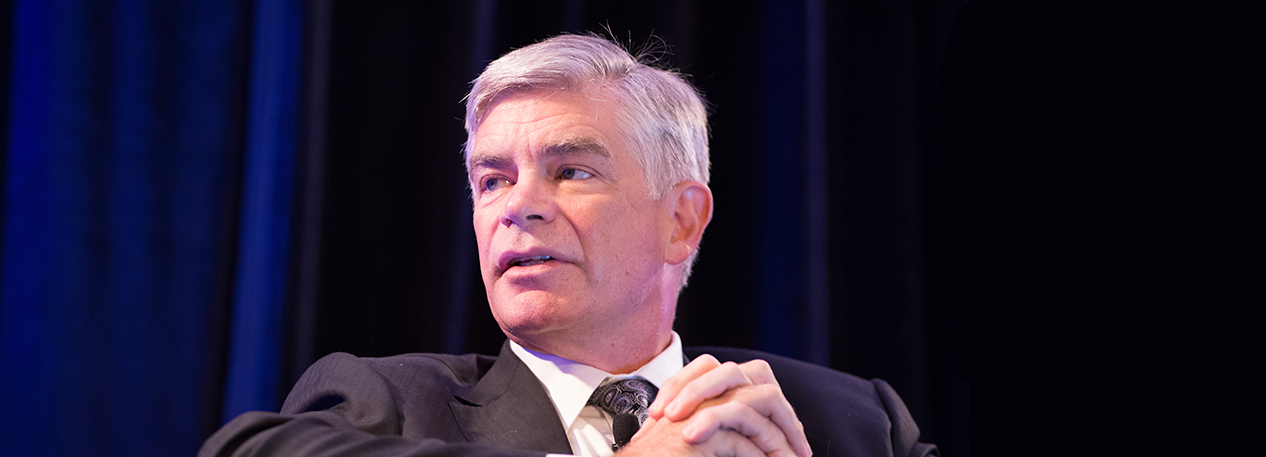For immediate release
Contact: Daneil Mazone, Media Relations, 215-574-7163
Philadelphia — The rising share of student debt “doesn’t just affect the people holding the debt — though it’s obviously a significant issue for them — it affects the wider economy in a variety of ways,” said Patrick T. Harker, president and CEO of the Federal Reserve Bank of Philadelphia. Harker made the remarks to students at Saint Joseph’s University in Philadelphia.
Harker noted the four-fold increase in student debt being taken on by older Americans. He also cited research from the Philadelphia and other Feds indicating that both business and household formation is already being affected by student debt. “There’s a narrative out there that millennials don’t want to buy houses,” he said. “But what if they don’t feel that buying is an option?” Both early career and life choices are affected by student loan burdens, as are credit scores and other factors in making investments, and student debt’s nondischargeable nature distinguishes it from other forms. Harker cited research by his staff and others that counters the rationale for nondischargeability, which did “not find evidence to support” the idea that student borrowers were more likely than others to fall prey to the “moral hazard” of strategically seeking to dismiss debt.
“Ultimately,” Harker said, “if the ability of our younger generations to participate in the economy is adversely affected, so, overall, is our economy.”
Equitable access to education is also fundamental, he said. “I am concerned that the looming shadow of student debt, coupled with increasing uncertainty about loan forgiveness programs and income-driven repayment, may dissuade some potential students — particularly those from low- and middle-income families — from going to college or pursuing jobs in public service.” That, he said, is an issue for the country at large.
“We’re talking about our future workforce, and to misallocate those resources, or funnel exceptional minds away from areas where they could have the most impact, is shooting ourselves in the foot.”
